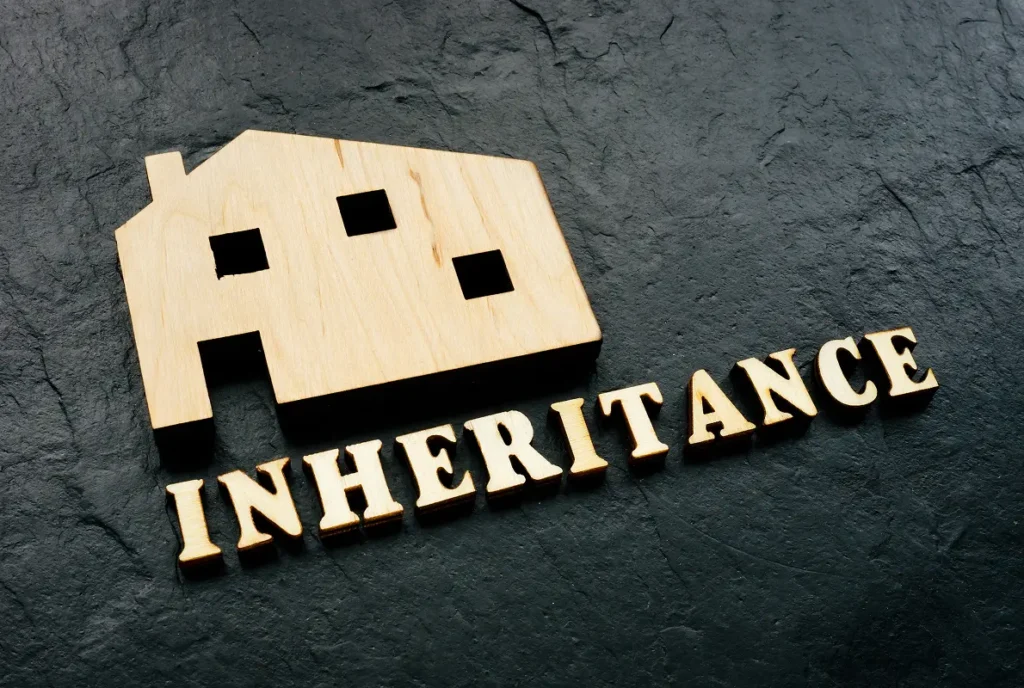Was a property recently left to you in a will, and now you’re not sure what to do next? Inheriting real estate can feel overwhelming, especially during an already emotional time. This complete guide will walk you through everything you need to know, consider, and decide when you inherit a home or investment property.
As award-winning property management professionals in Seattle, we understand the challenges and opportunities that come with inheriting real estate. Over the past 16 years, we’ve helped homeowners and families throughout Seattle, the Eastside, and the Greater Puget Sound Area navigate the complexities of inherited properties, from assessing market value and rental potential to managing maintenance, legal requirements, and long-term investment strategies. Whether you’re considering selling, renting, or keeping the property, our experienced team is here to guide you every step of the way.
Important Reminder: We are not CPAs, estate planners, or attorneys. These are important professionals to consult when you inherit a property.
Table of Contents
- What are my options when I inherit a house?
- What happens when you inherit a house that is paid off?
- What happens when you inherit a house with a mortgage?
- What happens when you inherit a house with a reverse mortgage?
- What is the first thing you do when you inherit a house?
- What costs come with inherited real estate?
- How does inheriting a house affect my taxes?
- Can I avoid paying capital gains tax on my inherited real estate?
- How SJA Property Management can help?
What are my options when I inherit a house?
Inheriting a home can be both a gift and a challenge, especially when you’re navigating financial and legal responsibilities. Once ownership officially transfers to you, you generally have three main options.
1. Move Into the Home
If the inherited property is in good condition and fits your lifestyle, you may decide to keep the home as your personal residence. Living in an inherited house can be a smart choice, especially if you want to stay connected to family memories or enjoy the neighborhood. One major benefit is that there’s no capital gains tax at the time of inheritance, and the home receives a stepped-up basis, meaning its value resets to the current market price, which can help you save money on future taxes if you ever decide to sell.
However, it’s important to remember that once you take ownership, you’ll be responsible for ongoing costs such as property taxes, homeowner’s insurance, utilities, and regular maintenance. Before moving in, take time to review your budget, inspect the home’s condition, and make sure keeping your inherited property makes financial sense for your situation.
2. Rent the Property
If selling isn’t your first choice, you can turn your inherited home into a rental property and generate steady monthly income. Renting an inherited house is a great option if you want to keep the property in the family while also building long-term wealth. This approach allows you to take advantage of Washington’s strong rental market, especially in Seattle, the Eastside, and the Greater Puget Sound Area.
However, becoming a landlord also means handling tenant screening, maintenance, and repairs. To make things easier, many heirs choose to work with a professional property management company like SJA Property Management, which handles everything from marketing the home to collecting rent and coordinating repairs. With expert management, your inherited property can become a reliable investment rather than a burden.
3. Sell the Property
If the inherited property doesn’t fit your lifestyle, or if you share ownership with other heirs, selling the home may be the best option. Selling an inherited house allows you to access its cash value quickly, simplify your finances, and divide proceeds fairly among family members. The good news is that you usually won’t owe much (if any) capital gains tax when selling soon after inheritance, thanks to the stepped-up basis that resets the property’s taxable value to its current market price.
Before listing the home, it’s wise to get a professional appraisal and complete any minor repairs to maximize its sale price. With the help of a real estate or property management expert, you can navigate the selling process smoothly and make the most of your inherited real estate in Washington State.
Additional Factors to Consider
When you inherit a house in Washington, there are several important factors to consider before making any major decisions. First, it’s helpful to understand the tax implications. Washington State does not have an inheritance tax, but it does impose a state estate tax on estates valued at more than $3 million as of January 2026.
If the home still has a mortgage, the estate or heirs must continue making payments or refinance the loan into their own name. In the case of a reverse mortgage, repayment is typically due once the original borrower passes away.
Finally, it’s always wise to schedule an inspection and appraisal early in the process. These evaluations can help you determine the property’s true condition, establish your tax basis, and guide your decisions on insurance, maintenance, or selling the home.
What Happens When You Inherit a House That Is Paid Off?
If you inherit a property that’s already paid off, the home transfers to you free of debt once probate (if required) is completed. You’ll take ownership outright, with no remaining mortgage to pay.
- What You’ll Need to Do:
- Update the deed to reflect your ownership.
- Continue paying property taxes, insurance, and maintenance costs.
- Decide whether to live in, rent, or sell the property.
- Washington Note: Once title transfers, the property becomes your separate property (even if you’re married), unless you choose to commingle it with community funds.
What Happens When You Inherit a House With a Mortgage?
If the home still has a mortgage balance, you inherit both the property and the debt tied to it.
- Most mortgages include a “due-on-sale” clause, but federal law (the Garn–St. Germain Depository Institutions Act) makes an exception for inherited properties. That means the lender can’t demand immediate repayment — you can usually take over the loan or refinance it in your name.
- Your Options:
- Keep the loan: Continue making payments if you plan to keep or rent the home.
- Refinance or sell: If you can’t afford payments, refinance for better terms or sell the property to pay off the balance.
- Important: Until probate is settled and the property title is officially transferred, the estate is responsible for payments to prevent default.
What Happens When You Inherit a House With a Reverse Mortgage?
A reverse mortgage works differently. The homeowner borrowed against the home’s equity, and repayment becomes due when the borrower passes away.
- If you inherit a home with a reverse mortgage:
- The full loan balance must be repaid — typically within 6 months, though extensions are possible.
- You have three main options:
- Pay off the loan — usually by refinancing in your own name.
- Sell the property to satisfy the loan. If the home’s value exceeds the loan amount, you keep the difference.
- Deed the property to the lender if the loan balance is higher than the home’s market value.
- Washington Note: Because title technically vests immediately upon death (RCW 11.04.250), heirs may sell or refinance the home but must settle the reverse mortgage before claiming full ownership.
Inheriting a Home: Comparison at a Glance
| Scenario | What Happens | Your Options | Key Considerations (Washington State) |
|---|---|---|---|
| 1. The house is paid off | You inherit the property free of debt. Ownership transfers to you after probate (if required). |
|
|
| 2. The house has a mortgage | The home transfers with the existing mortgage attached. You assume responsibility for payments. |
|
|
| 3. The house has a reverse mortgage | The reverse mortgage becomes due upon the borrower’s death. The loan must be repaid before ownership can be finalized. |
|
|
What is the First Thing You Do When You Inherit a House?
Inheriting a property can bring both emotional and financial decisions. Whether the home is paid off, mortgaged, or has a reverse mortgage, taking the right steps early helps protect your new asset and avoid costly mistakes. Here’s the first thing you need to do:
1. Secure and Evaluate the Property
- Change the locks, collect keys, and make sure the home is secure.
- Review the homeowner’s insurance policy – many lapse after the owner’s death.
- Schedule a professional inspection and appraisal to understand the home’s condition and value.
2. Determine Ownership and Estate Details
- Confirm whether the property is part of a probate estate or transfers directly (for example, via joint ownership or trust).
- Obtain a copy of the will or letters testamentary (if applicable) to verify your legal authority to act.
- In Washington, real estate generally vests automatically in heirs at death (RCW 11.04.250), but probate may still be required to clear title or settle debts.
3. Assess Financial Obligations
- Check for mortgages, liens, unpaid taxes, or HOA dues.
- If there’s a mortgage, contact the lender immediately to discuss options for assumption, refinance, or payoff.
- If it’s a reverse mortgage, notify the lender and ask about your repayment timeline (usually six month
4. Decide What to Do With the Property
- Live in it: Move in and make it your residence.
- Rent it out: Turn it into a long-term investment and generate income.
- Sell it: Liquidate the asset, often with minimal or no capital gains tax if sold shortly after inheritance (thanks to the stepped-up basis).
At SJA Property Management, we’ve spent over 16 years helping homeowners across Seattle, the Eastside, and the Greater Puget Sound Area evaluate and manage inherited properties. Our team can help you understand your options, coordinate repairs, and handle every step of the management or leasing process.
5. Consult Professional Advisors
Before making major financial decisions, it’s wise to speak with:
- A CPA or tax advisor for inheritance and capital gains implications
- An estate attorney for probate and title matters
- A property management professional (like SJA) for rental or sale planning
What Costs Come With Inherited Real Estate?
Even when a home is inherited free and clear, owning it isn’t cost-free. Once you inherit real estate, you become responsible for ongoing expenses, potential taxes, and any debts tied to the property. Understanding these costs upfront helps you make an informed decision about whether to keep, rent, or sell the home.
1. Property Taxes
When you inherit a home in Washington, you become responsible for annual property taxes starting from the date of inheritance. These taxes are calculated based on the home’s assessed value, which can be different from its actual market value. Before selling or transferring ownership, it’s important to make sure all property taxes are up to date, since any unpaid taxes must be settled first.
Some Washington counties also offer tax deferrals or exemptions for heirs who are seniors or disabled, which can help reduce financial strain while you decide what to do with the inherited property. Staying informed about local property tax rules ensures you avoid penalties and keep your new home in good standing.
2. Homeowner’s Insurance
When you inherit a home, one of the first things to review is the homeowner’s insurance policy. Many people don’t realize that insurance coverage doesn’t always transfer automatically after the owner passes away. Contact the insurance company as soon as possible to confirm whether the policy is still active and to update it under your name or the estate’s name.
If the home will remain vacant for several months, you may need a vacant home insurance policy instead of a standard one, since regular homeowner’s insurance often won’t cover damage to an unoccupied property. Keeping continuous coverage is essential to protect your inherited home from potential risks such as fire, water damage, or vandalism while you decide whether to live in, rent, or sell the property.
3. Maintenance and Repairs
Inherited homes often need a little extra care, especially if they’ve been vacant or haven’t been updated in years. Once you take ownership, it’s important to inspect the property thoroughly and make a list of necessary maintenance and repairs. Common expenses include cleaning, landscaping, plumbing or electrical fixes, and general safety updates. You may also need to handle larger projects like roof repairs, appliance replacements, or cosmetic upgrades before selling or renting the home. Keeping up with routine maintenance not only preserves the property’s value but can also prevent costly issues later.
If managing repairs feels overwhelming, a professional property management company like SJA Property Management can help coordinate maintenance, hire trusted contractors, and ensure your inherited home stays in top condition, whether you plan to keep, rent, or sell it.
4. Mortgage or Reverse Mortgage Payments
If the inherited home still has a mortgage, you’ll need to decide how to manage the loan. In most cases, the estate or heirs must continue making mortgage payments to keep the account in good standing. Federal law allows heirs to take over the loan or refinance it without triggering the “due-on-sale” clause, which means the bank can’t demand full repayment just because ownership changed through inheritance.
However, if the property has a reverse mortgage, the situation is different. These loans must usually be repaid shortly after the borrower’s death, typically within six months, though extensions are sometimes available. You can pay off the balance, sell the home, or, if the loan amount exceeds the home’s value, transfer the property back to the lender. Understanding your financing options early helps you protect your credit, preserve equity, and make smart choices about your inherited real estate.
5. Legal and Administrative Costs
When you inherit a home, there are often legal and administrative costs that come with transferring ownership. If the estate goes through probate, you may need to pay for court filing fees, attorney services, or executor expenses. These costs can vary depending on how complex the estate is and whether multiple heirs are involved. You might also need to cover the cost of property appraisals, title transfers, or document filings to officially record ownership in your name.
While these fees are usually paid from the estate before assets are distributed, they can still affect how much value you ultimately receive. Taking time to understand the legal process, and working with an experienced estate attorney or property management team, can help ensure everything is handled correctly and efficiently when managing inherited real estate in Washington State.
6. Taxes on the Estate or Sale
When it comes to taxes on inherited property in Washington State, it’s important to know what applies and what doesn’t. Washington does not have an inheritance tax, so heirs don’t pay taxes simply for receiving a property. However, the state does have an estate tax on estates valued at more than $2.193 million as of 2025 (this will change to $3 million in 2026). This tax is paid by the estate before assets are distributed, not by individual heirs.
If you decide to sell the inherited home, you may owe capital gains tax on any profit earned above the home’s stepped-up basis, which is its fair market value at the time of inheritance. The stepped-up basis helps minimize or even eliminate capital gains taxes if the home is sold soon after it’s inherited. Before making any sale or transfer, it’s a good idea to speak with a CPA or tax advisor to understand your exact tax responsibilities and ensure you make the most of available exemptions.
How Does Inheriting a House Affect My Taxes?
One of the biggest questions heirs have is how taxes apply when they inherit real estate. The good news is that in most cases, you won’t owe immediate taxes just for inheriting a property. However, you should understand how estate taxes, property taxes, and capital gains can affect you later, especially if you decide to sell or rent the home.
1. Federal and Washington State Estate Taxes
When someone passes away, the estate (not the heir) may owe estate tax before distributing assets.
- Federal Estate Tax:
Only applies to estates worth more than $13.99 million as of 2025 — meaning most families are exempt. - Washington State Estate Tax:
Washington is one of the few states that charges its own estate tax, but no inheritance tax.- The exemption limit is $2.193 million for 2025 (this is changing to $3 million in 2026).
- If the total value of the estate exceeds that amount, the estate (not you personally) may owe between 10% and 20% in state estate tax.
- Estates smaller than the exemption pay no state estate tax.
2. Property Taxes
As the new owner, you’ll take over annual property tax payments based on the home’s assessed value.
- Washington property taxes vary by county but are typically due twice per year (April 30 and October 31).
- Property taxes remain your responsibility whether you occupy, rent, or sell the property.
3. Capital Gains Taxes (When You Sell)
If you decide to sell the inherited property, you may owe capital gains tax, but often very little or none at all, thanks to the stepped-up basis rule.
- Stepped-Up Basis:
When you inherit a property, its tax basis resets to the fair market value on the date of death.- Example: If your parents bought the home for $200,000 but it’s worth $800,000 when you inherit it, your new tax basis is $800,000.
- If you sell it soon after for $810,000, your taxable gain is only $10,000 — not $610,000.
- Primary Residence Exemption:
If you move into the inherited home and live there for at least two years, you may qualify for the $250,000 (single) or $500,000 (married) capital gains exclusion when you sell later.
4. Rental Income and Taxes
If you rent out the property:
- You’ll need to report rental income on your tax return.
- You can also deduct many expenses, such as repairs, maintenance, management fees, insurance, depreciation, and property taxes.
- A CPA can help you track deductions and ensure you’re optimizing your return.
5. Estate Administration and Other Costs
- You may have to file a final income tax return for the deceased person.
- The estate itself may need an EIN (Employer Identification Number) from the IRS to handle tax filings.
- Any income the estate earns before distribution (for example, rental income) must be reported on an estate income tax return.
- We recommend speaking with a tax professional for specific guidance.
Can I Avoid Paying Capital Gains Tax on My Inherited Real Estate?
In most cases, yes you can avoid or significantly reduce capital gains tax when selling inherited property, thanks to the stepped-up basis and other tax provisions. While there’s rarely a way to eliminate taxes entirely, understanding how capital gains are calculated can help you keep more of your profit when you sell.
1. The Stepped-Up Basis Rule
When you inherit a home, the property’s tax basis (its original purchase price for tax purposes) is “stepped up” to its fair market value on the date of the previous owner’s death.
- This means you only pay capital gains tax on the increase in value after you inherit it, and not since it was originally purchased.
- Example:
- Original purchase price: $200,000
- Market value when inherited: $750,000
- Sale price six months later: $760,000
- Taxable gain: Only $10,000
This rule often eliminates most or all capital gains tax if you sell the property soon after inheritance.
2. Sell Quickly to Minimize Taxes
If you plan to sell, doing so within a year or two of inheriting helps keep the gain small and tax manageable.
- Because the stepped-up basis resets to current market value, selling early minimizes any appreciation that could be taxed later.
- Even if the home increases in value slightly after inheritance, your long-term capital gains rate (typically 0–20%) is still usually lower than standard income tax rates.
3. Move In and Use the Home as Your Primary Residence
If you’d like to keep the property longer, you can reduce or avoid taxes later by turning it into your primary residence.
- If you live in the home for at least two years, you can exclude up to:
- $250,000 in gains if filing single, or
- $500,000 if married filing jointly.
- This rule applies even if the home was inherited, as long as you meet the ownership and residency requirements.
4. Deduct Selling Costs and Improvements
When calculating capital gains, you can subtract:
- Real estate agent commissions
- Closing costs
- Documented improvements (roofing, remodels, etc.)
These deductions can further reduce your taxable gain when you sell the property.
5. If the Home Has Depreciated
If the property’s market value has decreased since the date of death, you might actually be able to claim a capital loss when selling, though this typically only applies to inherited investment property, not personal residences.
How SJA Property Management Can Help
At SJA Property Management, we’ve spent over 16 years helping homeowners across Seattle, the Eastside, and the Greater Puget Sound Area make smart financial decisions about inherited real estate. We can help you:
- Assess your property’s current market value
- Coordinate appraisals and improvements
- Determine whether renting or selling makes the most sense for your situation
Our experienced team can guide you through every step, from managing the property short-term to preparing it for sale at top market value. Schedule a free consultation today.
If you want to learn more about being a landlord for the first time, check out our first-time landlord guide.






